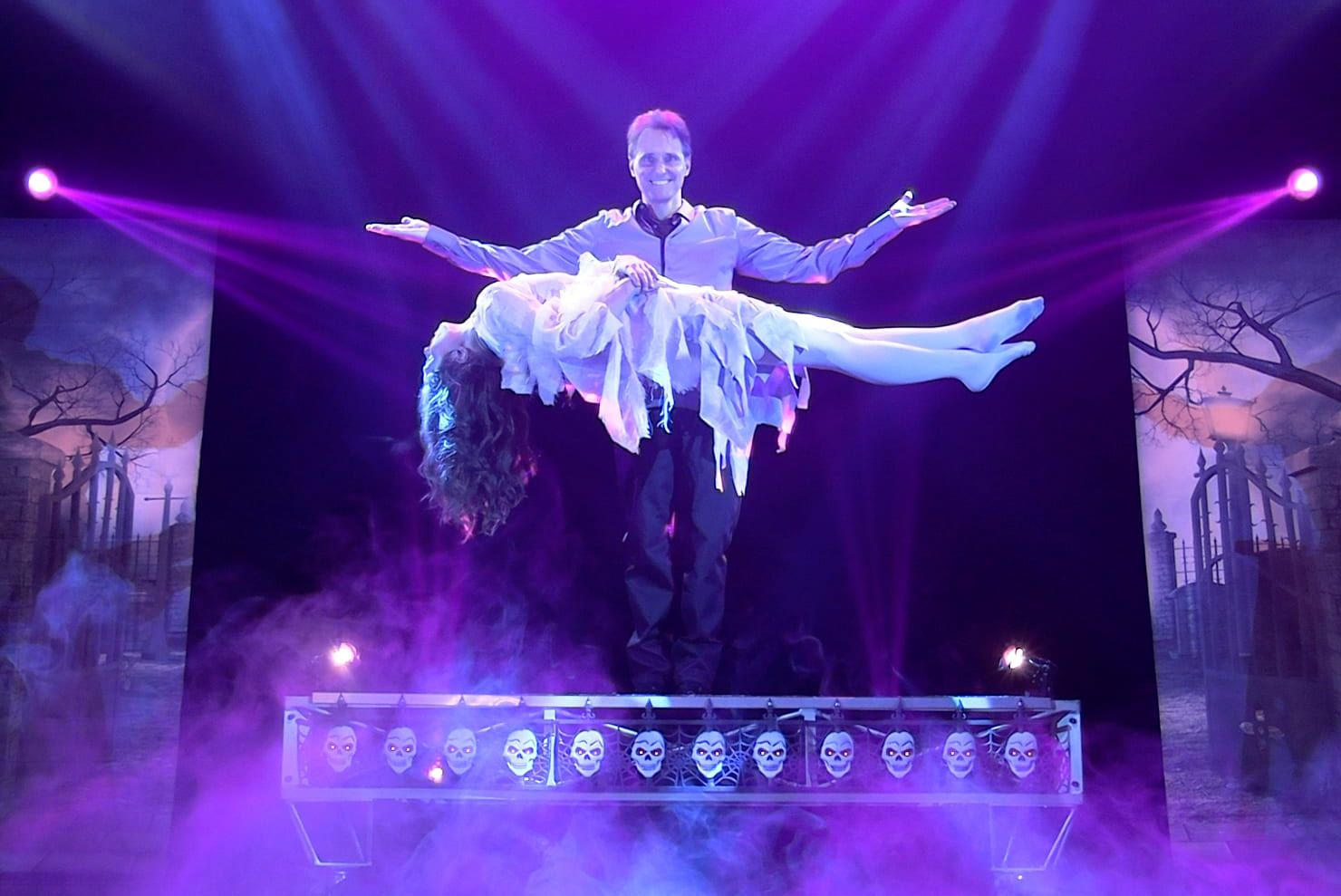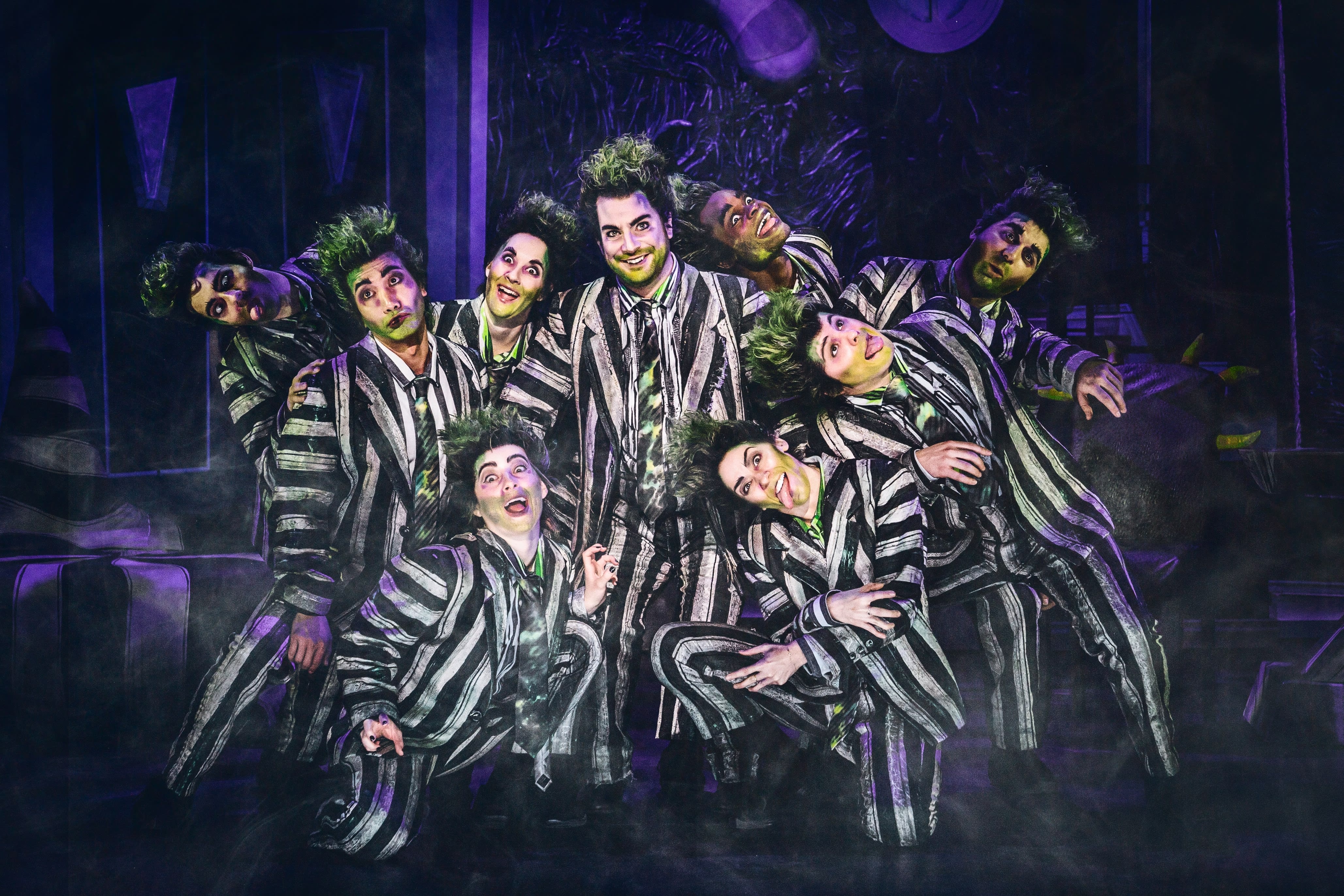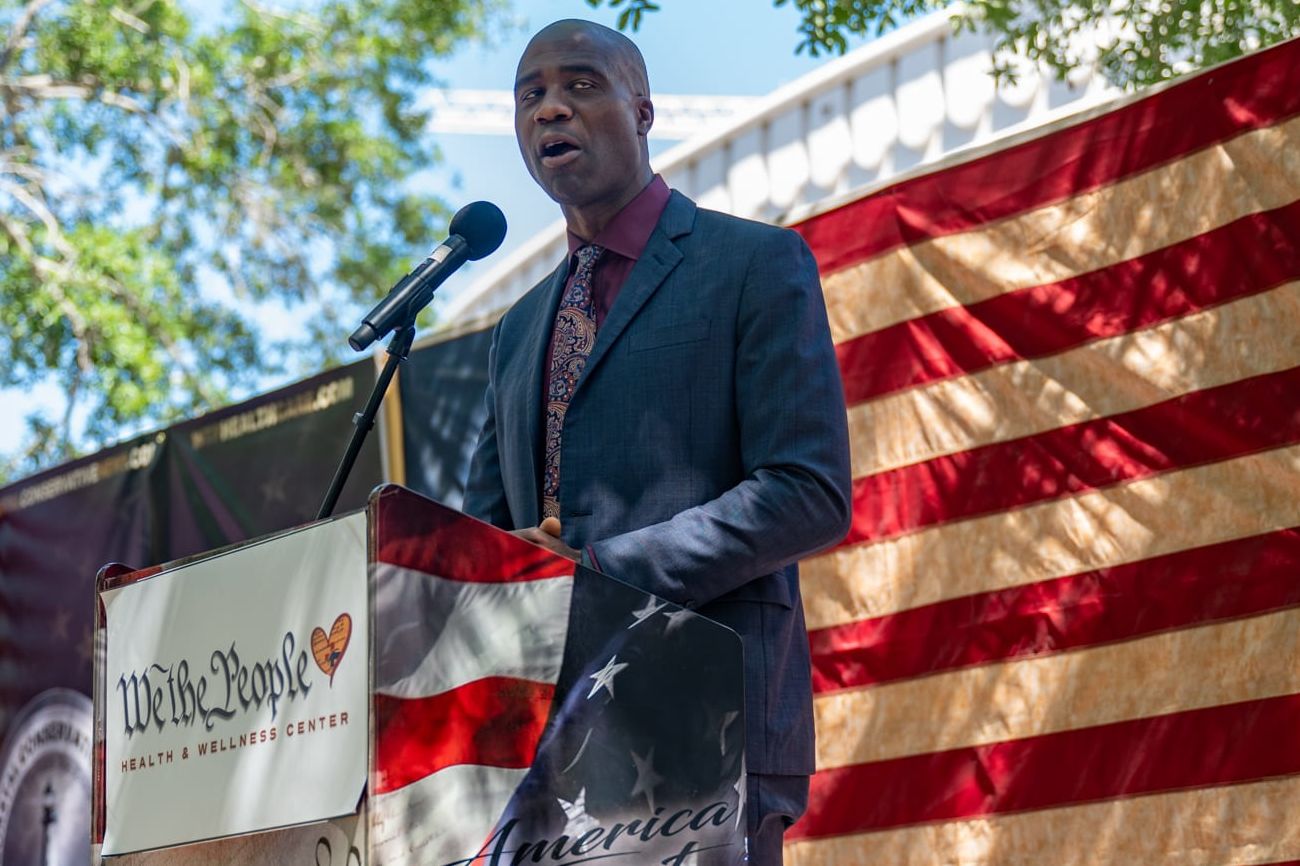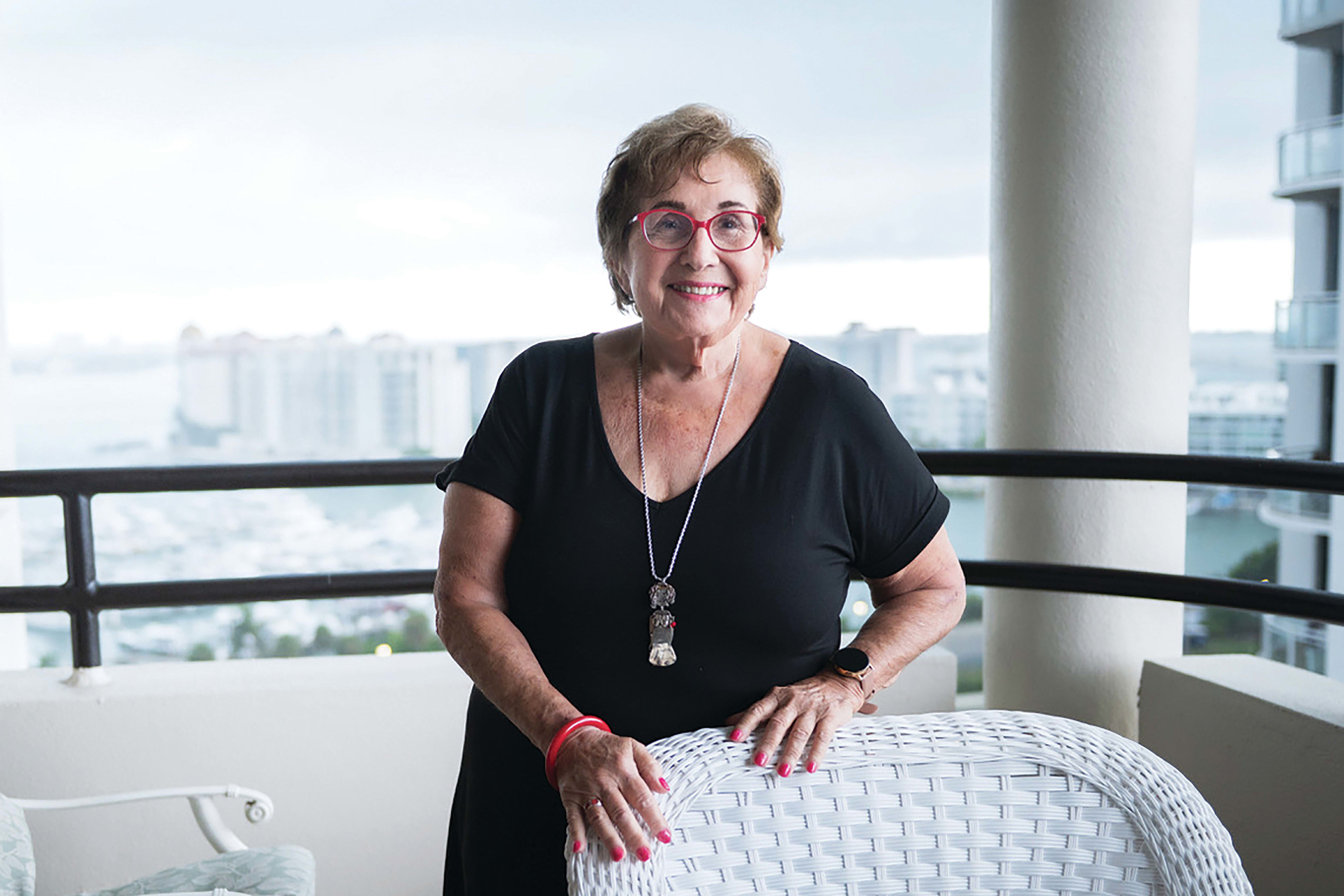Alanis Morissette’s Jagged Little Pill Is Now a Tony Award-Winning Musical, and It’s Coming to Sarasota

Jagged Little Pill on stage
Alanis Morissette’s 1995 album Jagged Little Pill is more than a Gen X touchstone. It has sold upwards of 33 million copies and continues to find new audiences hungry for its creator’s upbeat but angst-driven pop-rock.
Case in point: In 2013, recognizing that Morissette’s lyrics might lend themselves to something more grandiose than just an album, she and the LP’s producer, Glen Ballard, reworked the songs into a jukebox musical of the same name, complete with a script by Diablo Cody, best known for writing the 2007 film Juno. Spotlighting the underbelly of upper-middle-class suburban America, the show follows a family of four riven by opioid and pornography addiction, and disputes over gender identity, sexuality and consent, with Morissette’s iconic tunes adding context, color and a rock pulse.
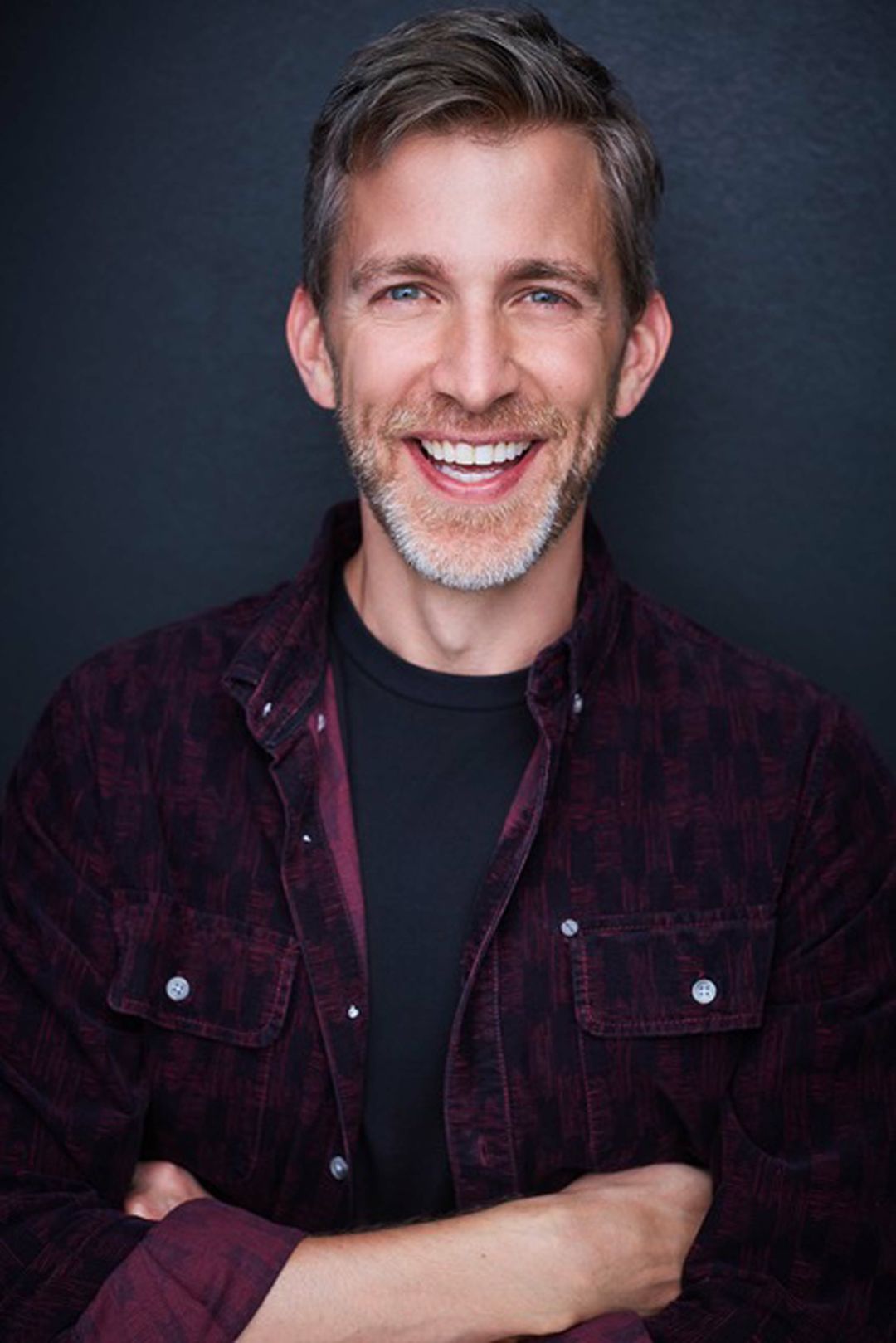
Benjamin Eakeley, who plays Steve Healey in Jagged Little Pill.
Image: Courtesy Photo
The Broadway tour of Jagged Little Pill arrives in Sarasota for three performances on Feb. 27 and 28 at the Van Wezel Performing Arts Hall. Veteran actor Benjamin Eakeley, who has starred in Broadway productions of Sweeney Todd and Cabaret, plays Steve Healey, the story’s workaholic patriarch, whose marriage to the central character, Mary Jane, is on the brink of collapse. We recently spoke to him about the show’s dynamic themes and music.
Did you grow up with this music, or have any connection to it prior to landing the job?
"I grew up listening to Alanis Morissette’s music when I was in high school. When we were driving to and from school, we used to bop along to the radio to 'Ironic.' It’s a real treat to experience this music from another angle."
Do you feel like the songs already had a conceptual connection, or did connections develop through the construction of the musical?
"Thematically, the songs all have a connection. When I was in high school, I just appreciated the songs for what they were—and the music videos, which were important for me and my friends. But I think the creators of this musical have done an amazing job creating a narrative that Alanis probably didn’t envision when she put together this music. I think she was writing from her heart, and that story gave life to this new story that we see on this stage."
The musical deals with themes that were not in the public consciousness in the mid-'90s.
"Absolutely. I think they also created this family dynamic, and you see how the music effects all four members of the Healy family, and the people who are in their lives, as well, differently. I think it’s a brilliant example of how versatile Alanis’ music is, and how one lyric can lead to several different interpretations, but all equally rich."
A lot of these songs were rock anthems in the '90s, and they are still karaoke favorites today. There’s a catharsis that people find in them. What’s different, if anything, about performing these songs versus Stephen Sondheim shows and more traditional Broadway work?
"There is a big difference. I think that when an audience has a pop soundtrack that they know and love and want to sing along to, there is an expectation as to how the song is going to be received, versus a song like Sondheim’s 'Loving You' from Passion.
"I think part of this is the difference between rock music and theatrical music. If you’re singing a Sondheim song, you’re going to feel like it’s you and the conductor, and the tempo might change from day to day and performance to performance. It may be this phrase will be a bit longer, and that phrase will be a bit shorter. But in a rock musical, it’s you and the band, and the band is a rock band, and you’re riding a rock rollercoaster. It’s probably a little more standard in the tempo and approach to the song. However, what happens is that you’ll do a scene, and then something new and exciting will come out of a song that you didn’t anticipate or plan on, and that’s the thrilling moment. I think we all feel a little bit like rock stars singing in this show, and it’s a nice change."
Tell me about your character, Steve Healey.
"Steve is the dad. He’s an attorney who lives in Connecticut with his wife and two kids. He is having some marital problems with his wife, which are no different than what every couple goes through. But in his obsession or in his myopia over his work, he doesn’t quite understand the root of these problems, and it leads to confusion and ultimately catharsis. So the show is really the journey of this rollercoaster ride of the woman who plays my wife, Mary Jane Healey, and how everybody else gets pulled along in her wake as the show progresses. So all three of us in the family go on different journeys that are all related to that central character. And the great thing about the show is that there is conflict but there is also resolution and ultimately catharsis. The construction is brilliant. It’s artfully done."
Diablo Cody won the Tony Award for Best Book of a Musical. What does she capture here?
"Humanity. No question about it. The text is so contemporary, it feels like we’re family members talking to each other onstage every night. And not only to have that ease of communication back and forth onstage, but to hear the audience responding to the themes that they recognize in their own lives—we hear it from the stage. Sometimes it’s hoots and hollers. Sometimes it’s gasps. Sometimes it’s laughs. The audience is along for the ride with us. This is, I believe, Diablo Cody’s first book for a musical, and she knocked it out of the park."
The plot reads really dark—one hurtful or self-destructive or tragic circumstance after another. How does it play compared to how it might read?
"It tackles head-on a lot of difficult, important contemporary social issues. And the amazing thing is that it tackles them all with humor. You can read on the page that this show deals with drug addiction. It deals with interracial adoption. It deals with sex and sexuality. It deals with feelings of abandonment. Although these themes are very heavy, the book is so funny that you recognize that you’re seeing a woman in crisis, but you kind of enjoy it along the way.
"It’s interesting in several ways, one of which is that it’s just nice to see that other people are as screwed-up as we all are. And furthermore, it’s nice to see that there’s always a way out of these difficult situations. But it’s through communication, and it’s very clear in the show that when everybody starts communicating, that’s where hope, rebirth and catharsis come in."
For me, the show’s vibe conjures Next to Normal, Dear Evan Hansen and maybe American Idiot. Is there an overlapping audience there?
"I think they all have a contemporary rock focus. So it’s more about the sound and the experience there. All of these shows have different themes, but this show is in a class by itself, because it takes music that much of the audience already loves, and allows the audience to experience it in a new way, in a new narrative structure. It’s kind of the best of all worlds."
